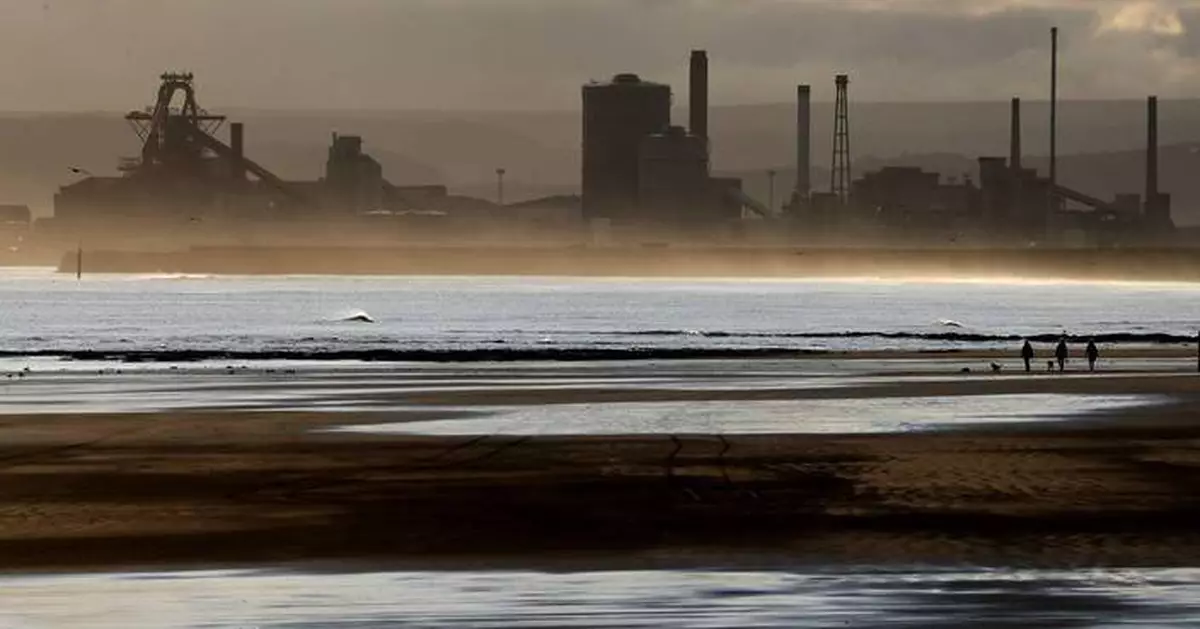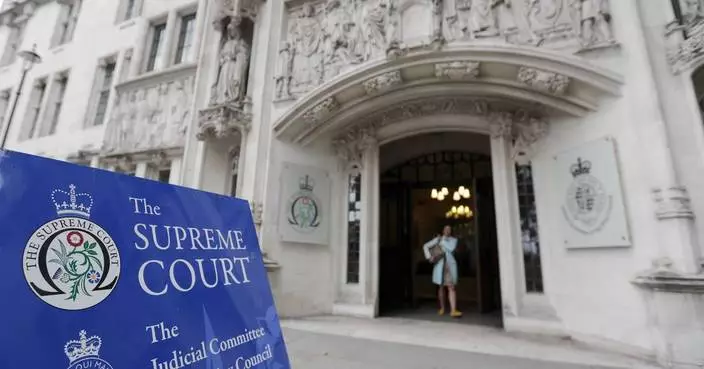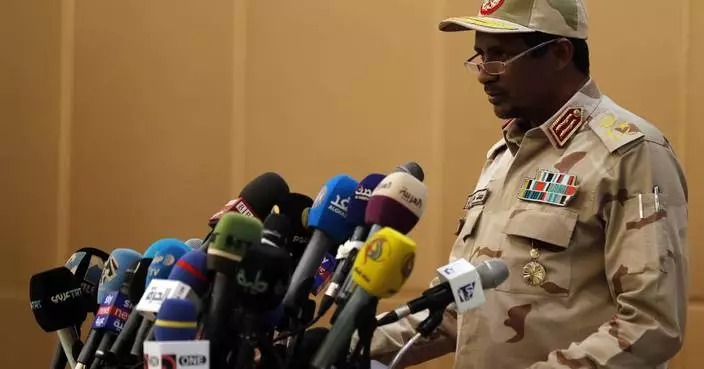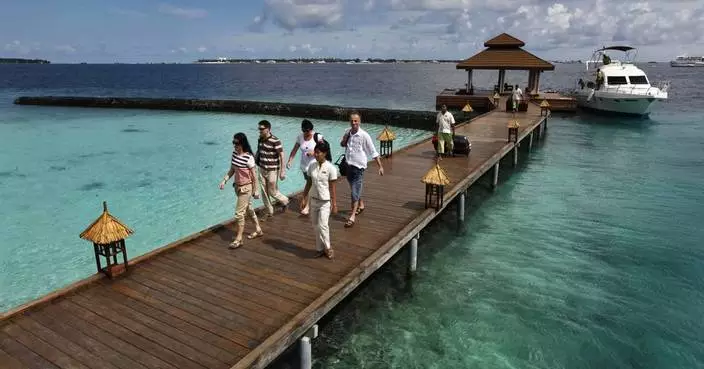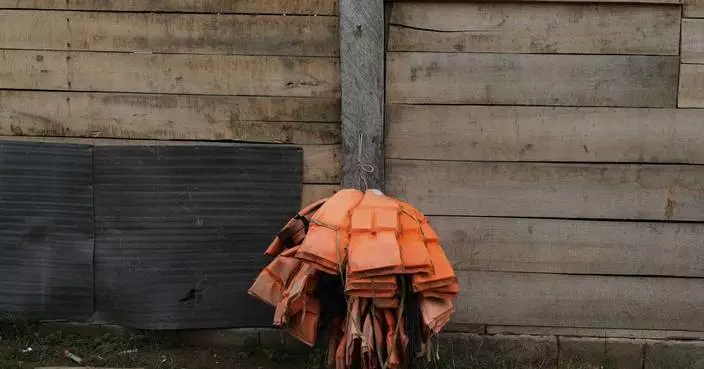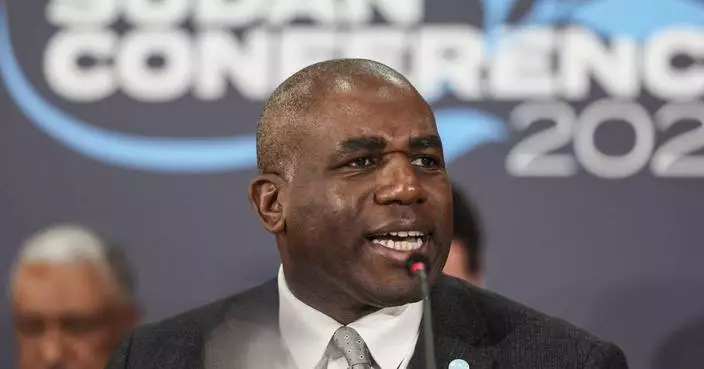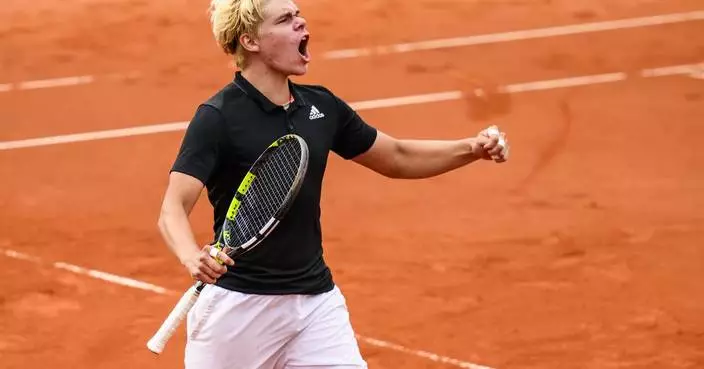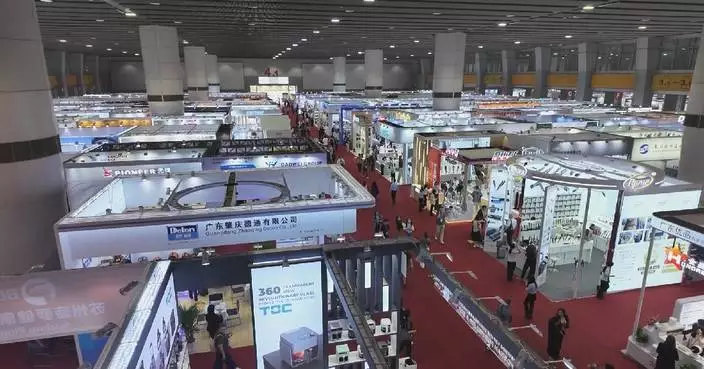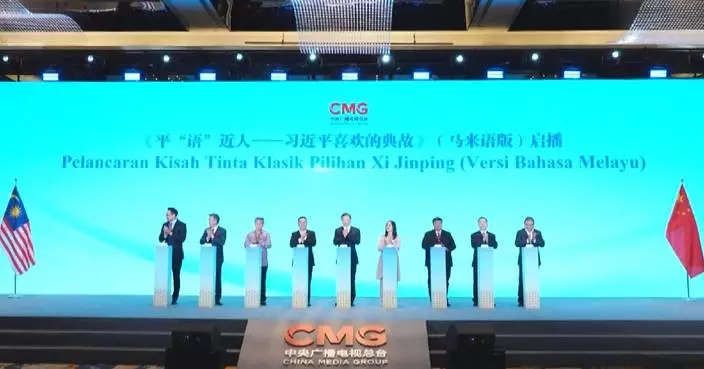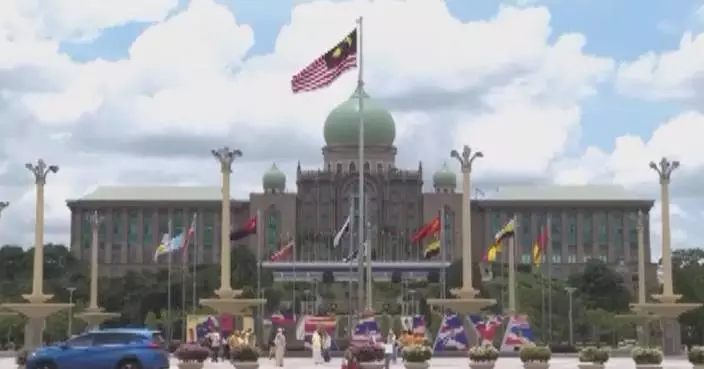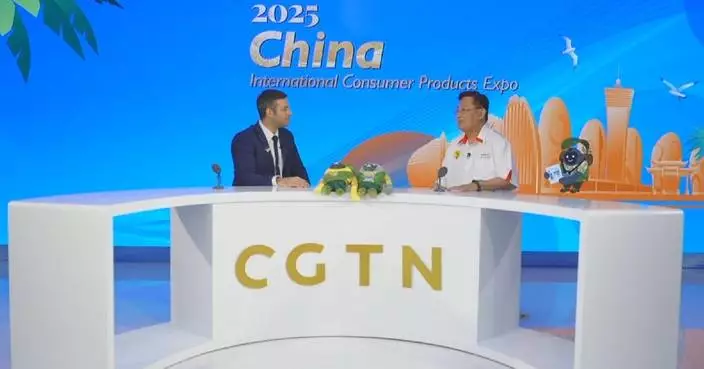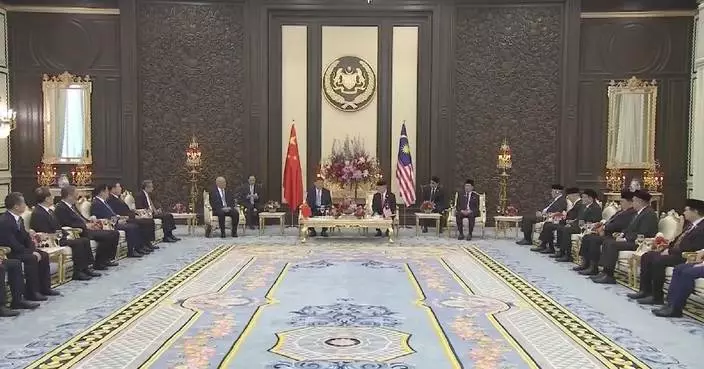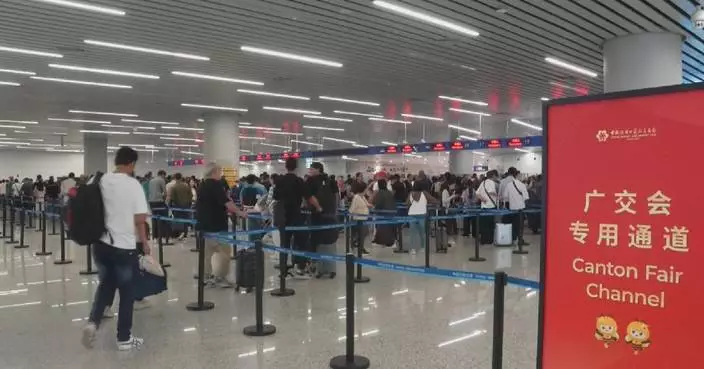LONDON (AP) — The U.K. government took effective control Saturday of Britain's last remaining factory that makes steel from scratch from its Chinese owners, after lawmakers approved an emergency rescue.
Prime Minister Keir Starmer summoned lawmakers for the unusual Saturday sitting, only the sixth since World War II, to back a bill primarily aimed at blocking British Steel's Chinese owners, Jingye Group, from closing the two massive blast furnaces at its Scunthorpe plant in the north of England that are key in the steelmaking process.
Click to Gallery
Britain's Prime Minister Keir Starmer speaks during a visit to meet British Steel workers in Appleby Village Hall near Scunthorpe, Lincolnshire, Saturday April 12, 2025. (Peter Byrne/Pool Photo via AP)
Britain's Prime Minister Keir Starmer speaks during a visit to meet British Steel workers in Appleby Village Hall near Scunthorpe, Lincolnshire, Saturday April 12, 2025. (Peter Byrne/Pool Photo via AP)
Britain's Prime Minister Keir Starmer speaks during a visit to meet British Steel workers in Appleby Village Hall near Scunthorpe, Lincolnshire, Saturday April 12, 2025. (Peter Byrne/Pool Photo via AP)
A general view of British Steel in Scunthorpe, Lincolnshire, Saturday April 12, 2025. (Peter Byrne/PA via AP)
This screen grab from PA video shows a view of the British Steel plant in Scunthorpe, Lincolnshire, Saturday April 12, 2025. (Jamie Lashmar/PA via AP)
A car carrying Britain's Prime Minister Keir Starmer arrives at Carriage Gates at the Houses of Parliament in Westminster, London, Saturday April 12, 2025. (Lucy North/PA via AP)
Britain's Prime Minister Keir Starmer holds a press conference at Downing Street, London, Friday April 11, 2025, calling an emergency weekend session of Parliament to pass legislation aimed at saving the country's last factory that makes steel directly from raw materials. (Carl Court/Pool via AP)
FILE - People walk their dogs on the beach, with the backdrop of the Redcar steel plant in the background, in Hartlepool, England, Nov. 12, 2019. (AP Photo/Frank Augstein, File)
The bill, which was debated over several hours and which is now law after being given royal ascent by King Charles III, gives Business Secretary Jonathan Reynolds the power to direct the company’s board and workforce, ensure its 3,000 workers get paid and order the raw materials necessary to keep the blast furnaces running.
Jingye has said the Scunthorpe plant is losing 700,000 pounds ($910,000) a day as a result of challenging market conditions and increased environmental costs. The recent decision by U.S. President Donald Trump to impose a 25% tariffs on imported steel hasn’t helped.
After the House of Commons passed the bill on a voice vote, Starmer arrived in Scunthorpe to meet workers, who were clearly relieved that the town's steelmaking heritage, which stretches back around 150 years, has been preserved.
“You and your colleagues for years have been the backbone of British Steel, and it’s really important that we recognize that," Starmer said. "It’s your jobs, your lives, your communities, your families.”
The relief in the town was evident during the interval of Scunthorpe United's soccer match, where the crowd at the Attis Arena cheered on a few dozen steelworkers on the field of play. The team is known as “The Iron,” a fond reflection of the town's identity.
Starmer had been under pressure to act after Jingye's recent decision to cancel orders for the iron pellets used in the blast furnaces. Without them and other raw materials, such as coking coal, the furnaces would likely have to shut for good, potentially within days, as they are extremely difficult and expensive to restart once cooled.
That would mean the U.K., which in the late 19th century was the world's steelmaking powerhouse, would be the only country in the Group of Seven industrial nations without the capacity to make its own steel from scratch rather than from recycled material, which use greener electric arc furnaces rather than blast furnaces.
The repercussions would be huge for industries like construction, defense and rail and make the country dependent on foreign sources for so-called virgin steel, a vulnerability that lawmakers from all political parties balked at.
“We could not, will not and never will stand idly by while heat seeps from the U.K.’s remaining blast furnaces without any planning, any due process or any respect for the consequences, and that is why I needed colleagues here today,” Reynolds told lawmakers.
Reynolds criticized Jingye for making “excessive” demands of the government in discussions in recent months, and that without the government's intervention, the company would have "irrevocably and unilaterally closed down primary steel making at British Steel.”
Though the legislation does not transfer ownership of the plant to the state, Reynolds conceded it was a future possibility.
It's unclear what role Jingye, owner of British Steel since 2020, will have in the day-to-day running of the steelworks. But should it fail to abide by the new laws, the company and its executives could face legal sanctions.
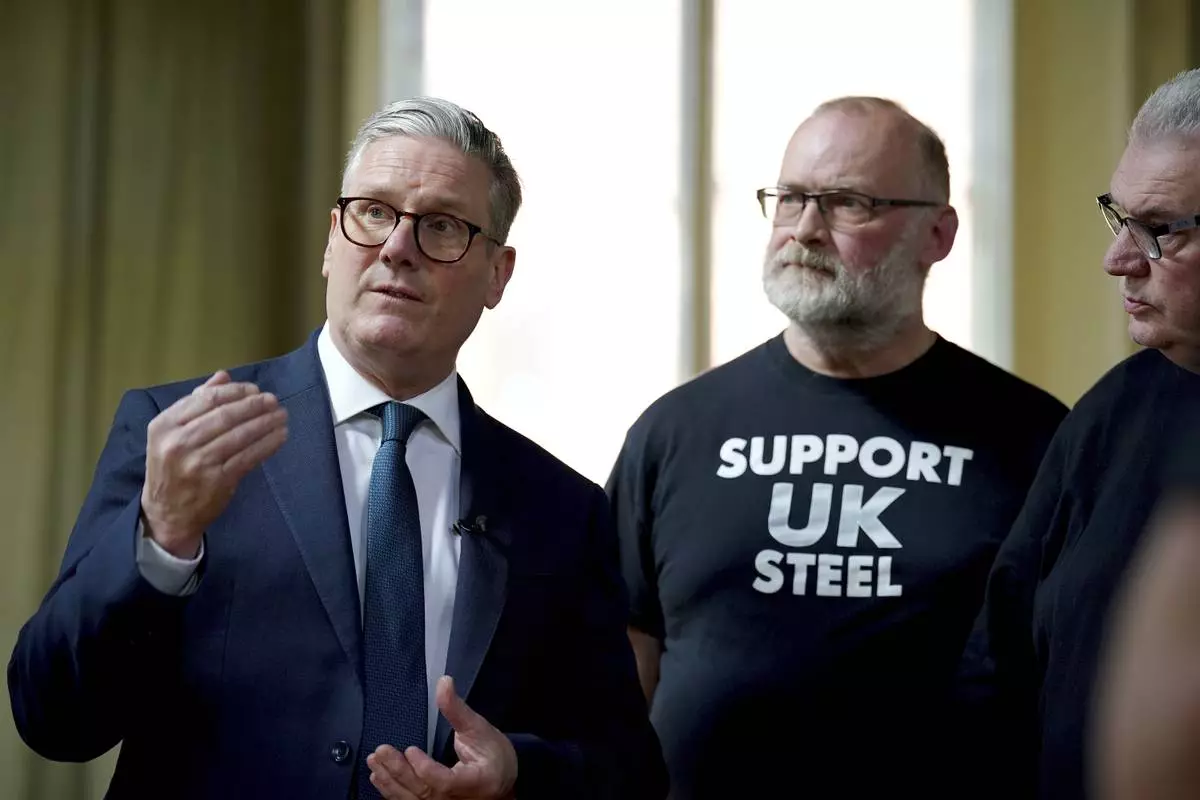
Britain's Prime Minister Keir Starmer speaks during a visit to meet British Steel workers in Appleby Village Hall near Scunthorpe, Lincolnshire, Saturday April 12, 2025. (Peter Byrne/Pool Photo via AP)
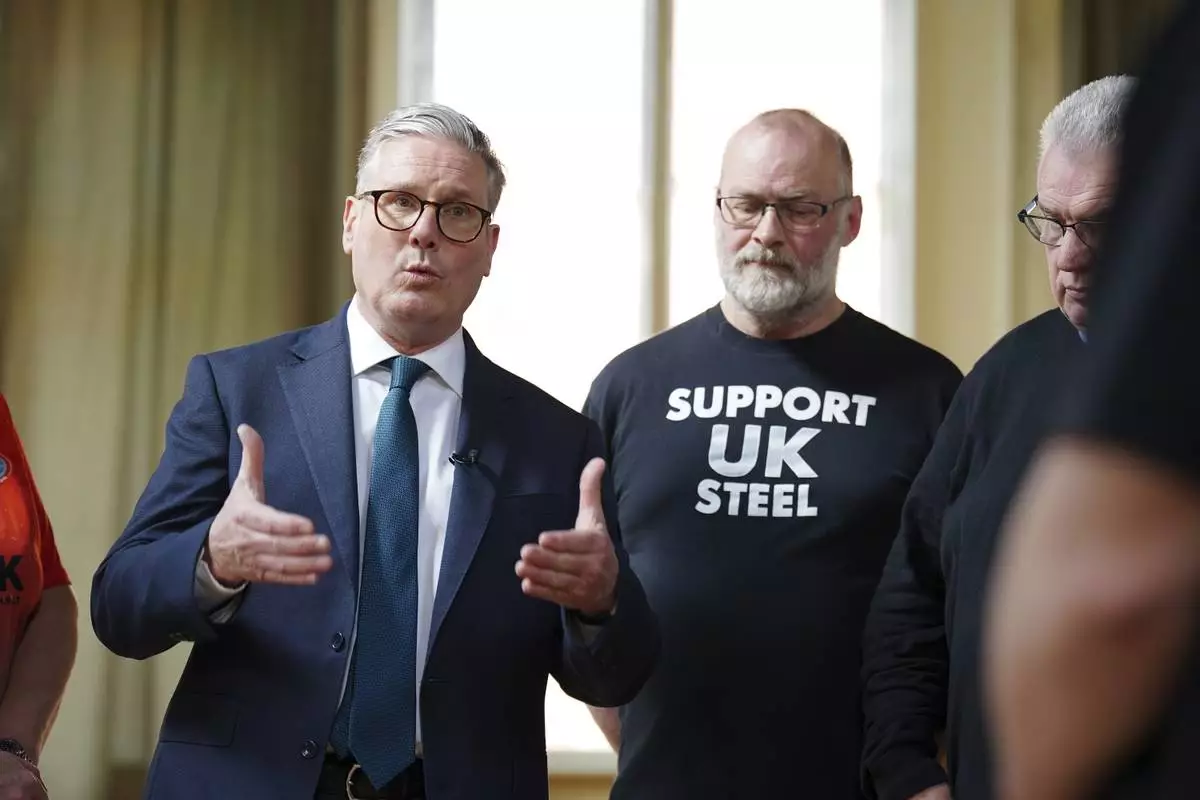
Britain's Prime Minister Keir Starmer speaks during a visit to meet British Steel workers in Appleby Village Hall near Scunthorpe, Lincolnshire, Saturday April 12, 2025. (Peter Byrne/Pool Photo via AP)
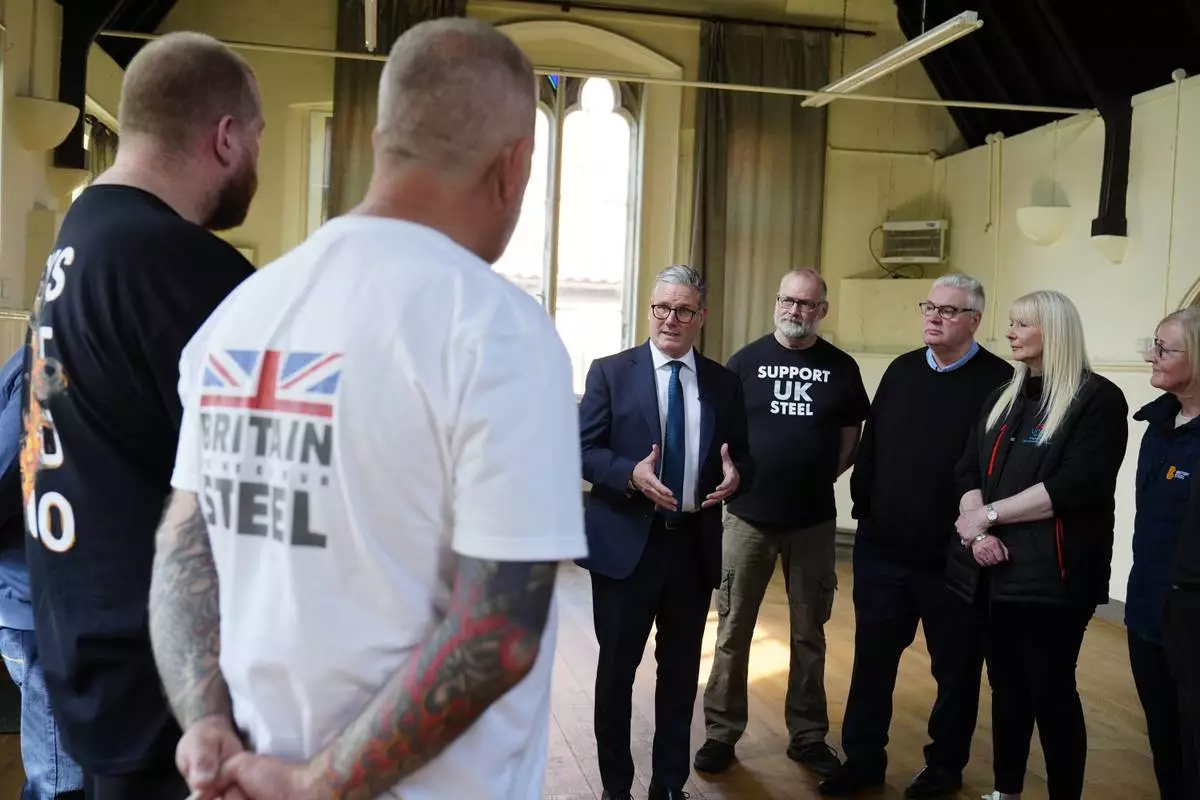
Britain's Prime Minister Keir Starmer speaks during a visit to meet British Steel workers in Appleby Village Hall near Scunthorpe, Lincolnshire, Saturday April 12, 2025. (Peter Byrne/Pool Photo via AP)
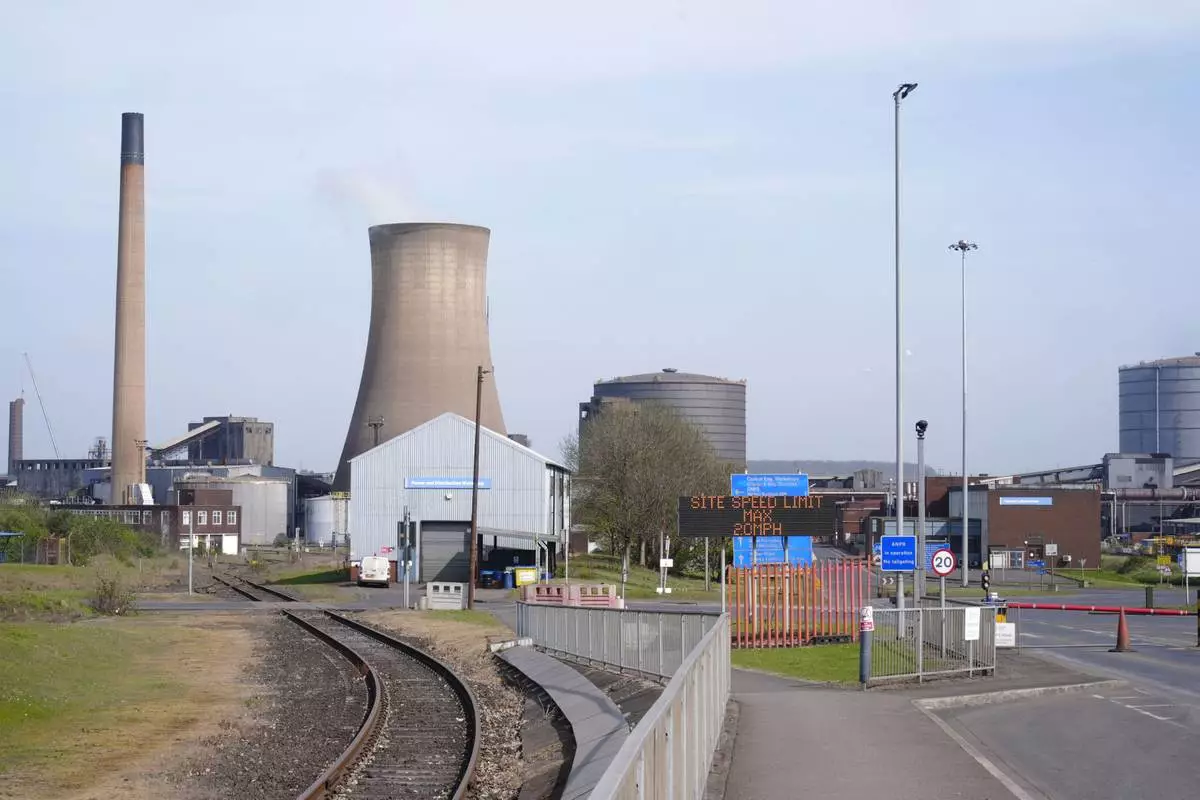
A general view of British Steel in Scunthorpe, Lincolnshire, Saturday April 12, 2025. (Peter Byrne/PA via AP)
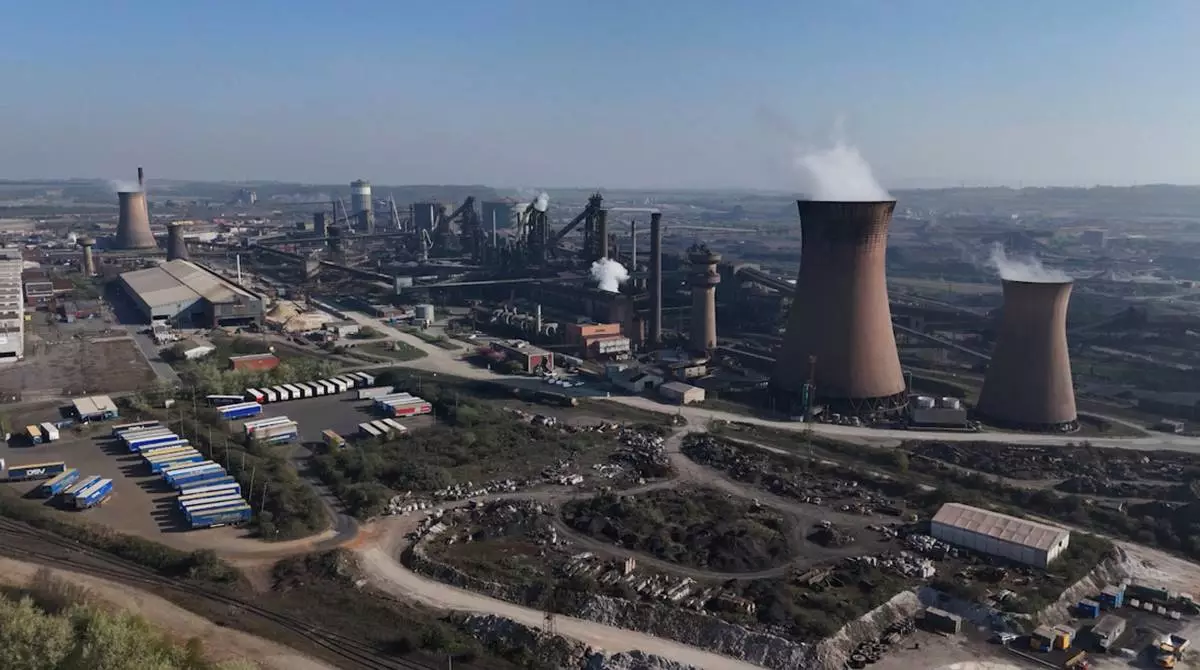
This screen grab from PA video shows a view of the British Steel plant in Scunthorpe, Lincolnshire, Saturday April 12, 2025. (Jamie Lashmar/PA via AP)

A car carrying Britain's Prime Minister Keir Starmer arrives at Carriage Gates at the Houses of Parliament in Westminster, London, Saturday April 12, 2025. (Lucy North/PA via AP)
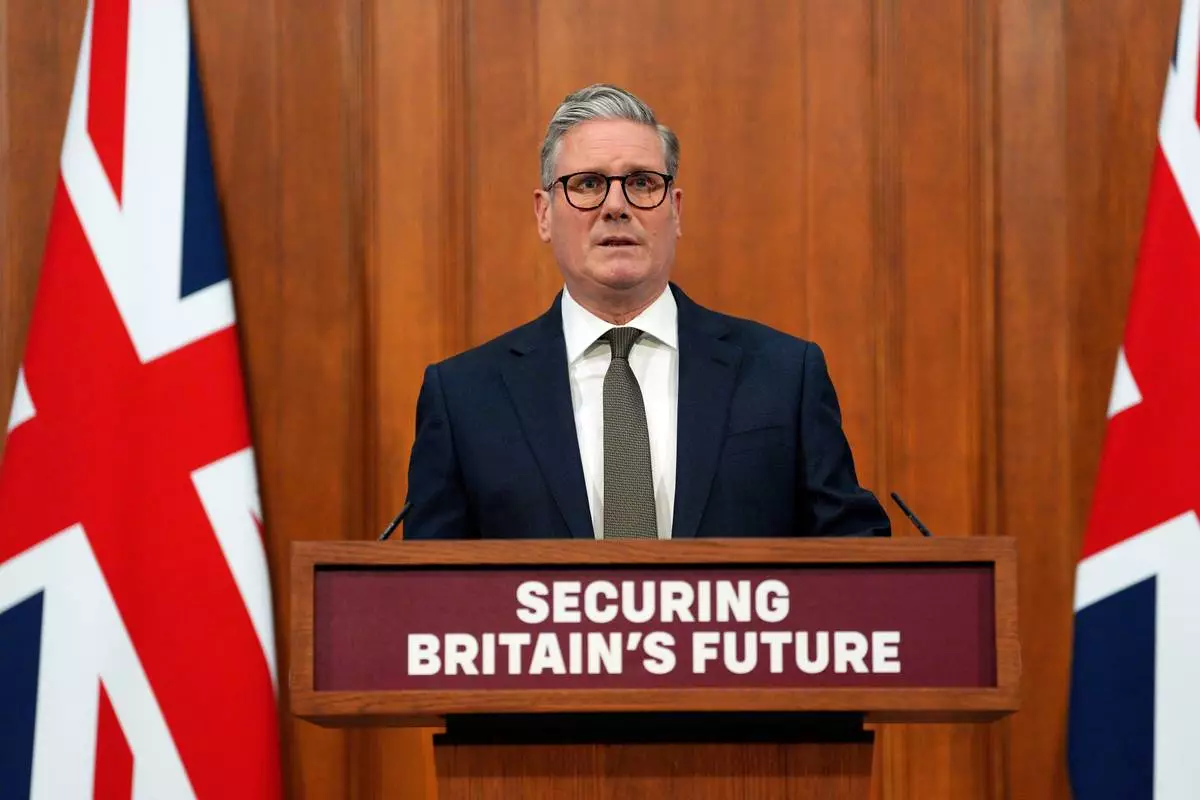
Britain's Prime Minister Keir Starmer holds a press conference at Downing Street, London, Friday April 11, 2025, calling an emergency weekend session of Parliament to pass legislation aimed at saving the country's last factory that makes steel directly from raw materials. (Carl Court/Pool via AP)
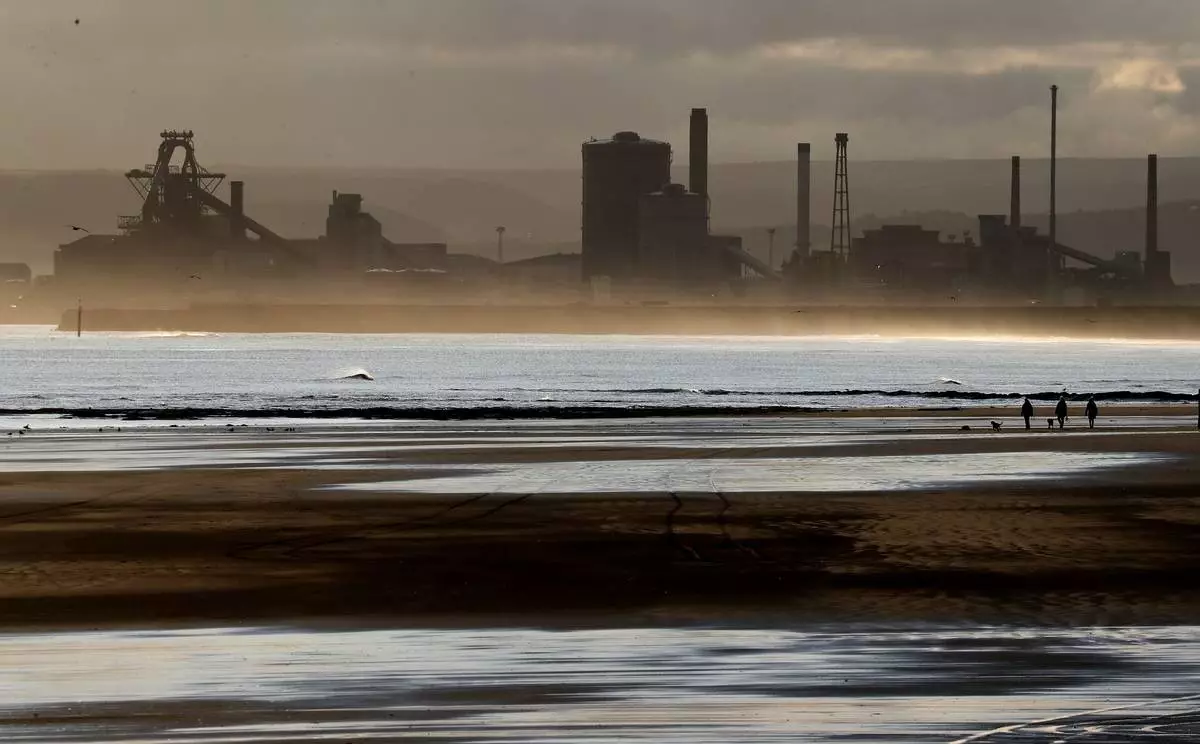
FILE - People walk their dogs on the beach, with the backdrop of the Redcar steel plant in the background, in Hartlepool, England, Nov. 12, 2019. (AP Photo/Frank Augstein, File)
DUBAI, United Arab Emirates (AP) — Iran 's president formally approved the resignation of one of his vice presidents who served as Tehran's key negotiator in its 2015 nuclear deal with world powers, just as the head of the United Nations' nuclear watchdog was due to arrive in the Islamic Republic on Wednesday.
President Masoud Pezeshkian's announcement late Tuesday regarding Mohammad Javad Zarif comes as Iran prepares for a second round of negotiations with the United States over its rapidly advancing nuclear program.
Meanwhile, the visit by Rafael Mariano Grossi, the head of the International Atomic Energy Agency, scheduled to start Wednesday may include negotiations over just what access his inspectors can get under any proposed deal.
The stakes of the negotiations couldn’t be higher for the two nations closing in on half a century of enmity. U.S. President Donald Trump repeatedly has threatened to unleash airstrikes targeting Iran’s nuclear program if a deal isn’t reached. Iranian officials increasingly warn that they could pursue a nuclear weapon with their stockpile of uranium enriched to near weapons-grade levels.
Zarif served as a key supporter of Pezeshkian in his election last year but drew criticism from hard-liners within Iran's Shiite theocracy, who long have alleged Zarif gave away too much in negotiations.
In March, Zarif tendered his resignation to Pezeshkian. However, the president did not immediately respond to the letter. Zarif has used resignation announcements in the past in his political career as leverage, including in a dispute last year over the composition of Pezeshkian’s Cabinet. The president had rejected that resignation.
But on late Tuesday, a statement from the presidency said Pezeshkian wrote Zarif a letter praising him but accepting his resignation.
“Pezeshkian emphasized that due to certain issues, his administration can no longer benefit from Zarif’s valuable knowledge and expertise,” a statement from the presidency said.
The president in a decree appointed Mohsen Ismaili, 59, to be his new vice president for strategic affairs. In Iran's political system, the president has multiple vice presidents. Ismaili is known as a political moderate and a legal expert.
Grossi meanwhile was due to arrive in Tehran and have meetings with Pezeshkian and others.
Since the nuclear deal’s collapse in 2018 with Trump's unilateral withdraw of the U.S. from the accord, Iran has abandoned all limits on its program, and enriches uranium to up to 60% purity — near weapons-grade levels of 90%.
Surveillance cameras installed by the IAEA have been disrupted, while Iran has barred some of the Vienna-based agency’s most experienced inspectors. Iranian officials also have increasingly threatened that they could pursue atomic weapons, something the West and the IAEA have been worried about for years since Tehran abandoned an organized weapons program in 2003.
Any possible deal between Iran and the U.S. likely would need to rely on the IAEA's expertise to ensure Tehran's compliance. And despite tensions between Iran and the agency, its access has not been entirely revoked.
It remains unclear where the next round of talks will be held, though they are scheduled for Saturday. Officials initially identified Rome as hosting the negotiations, only for Iran to insist early Tuesday they would return to Oman. American officials so far haven’t said where the talks will be held, though Trump did call Oman’s Sultan Haitham bin Tariq on Tuesday while the ruler was on a trip to the Netherlands.
Meanwhile, Iran's Foreign Minister Abbas Araghchi on Wednesday warned the U.S. about taking contradictory stances in the talks.
That likely refers to comments from U.S. Mideast envoy Steve Witkoff, who this week initially suggested a deal could see Iran go back to 3.67% uranium enrichment — like in the 2015 deal reached by the Obama administration. Witkoff then followed up with saying "a deal with Iran will only be completed if it is a Trump deal.”
“Iran must stop and eliminate its nuclear enrichment and weaponization program,” he wrote on the social platform X. “It is imperative for the world that we create a tough, fair deal that will endure, and that is what President Trump has asked me to do.”
Araghchi warned America about taking any “contradictory and opposing stances” in the talks.
“Enrichment is a real and accepted issue, and we are ready for trust building about possible concerns," Araghchi said. But losing the right to enrich at all "is not negotiable.”
Karimi reported from Tehran, Iran.
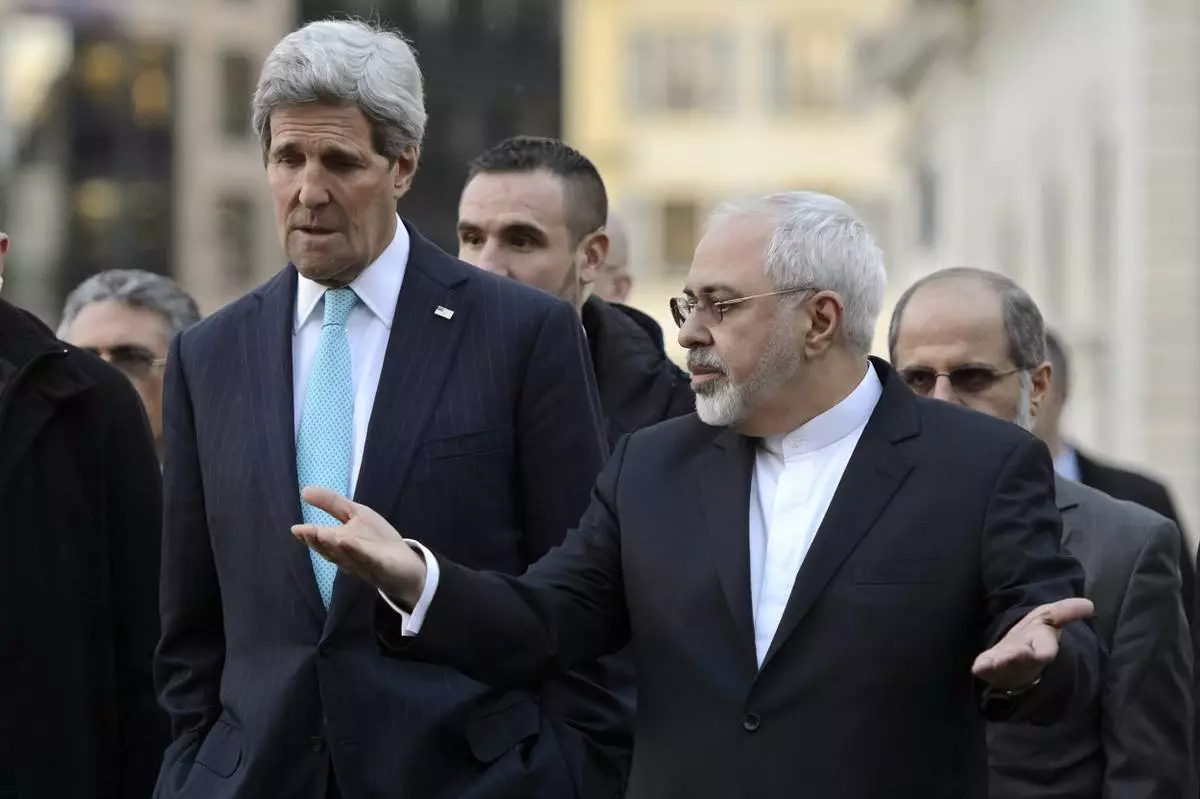
FILE - US Secretary of State John Kerry, left, listens to Iranian Foreign Minister Mohammad Javad Zarif, as they walk in the city of Geneva, Switzerland, Jan. 14, 2015, during a bilateral meeting ahead of the next round of nuclear discussions. (AP Photo/Keystone, Martial Trezzini, File)
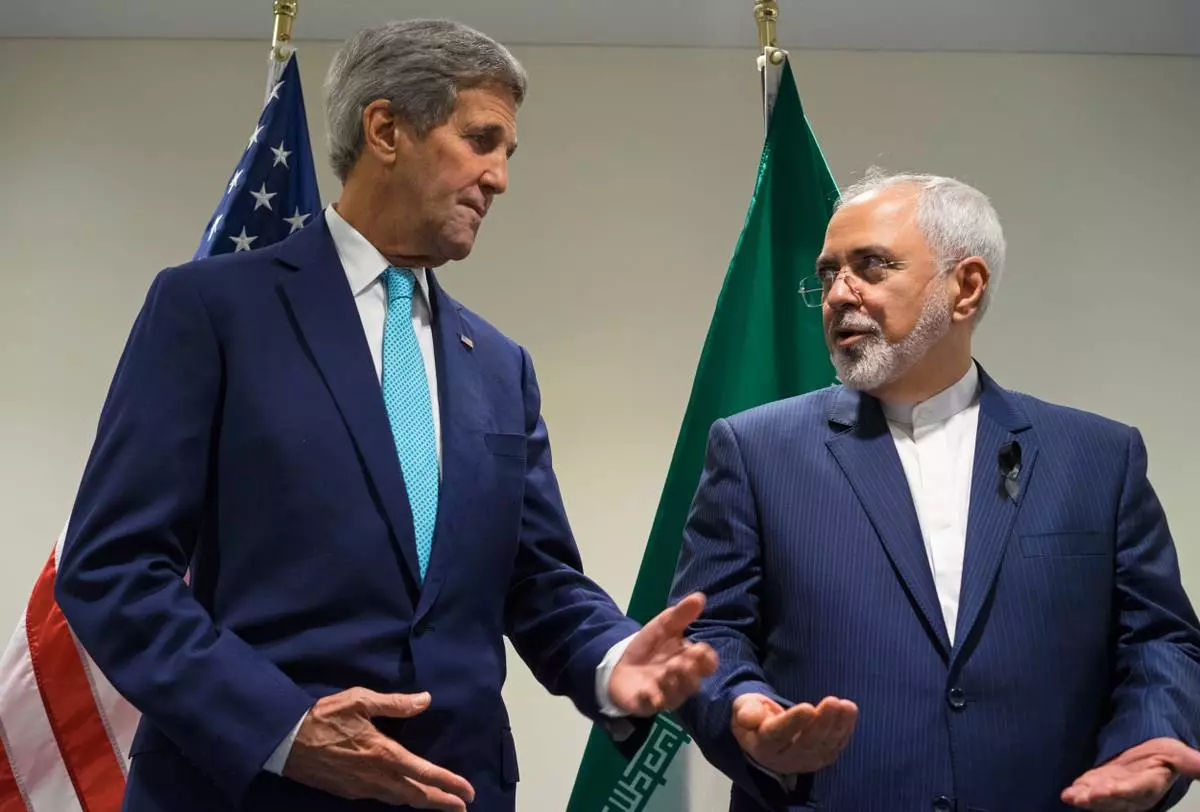
FILE - U.S. Secretary of State John Kerry, left, meets with Iranian Foreign Minister Mohammad Javad Zarif at United Nations headquarters, on Sept. 26, 2015. (AP Photo/Craig Ruttle, File)
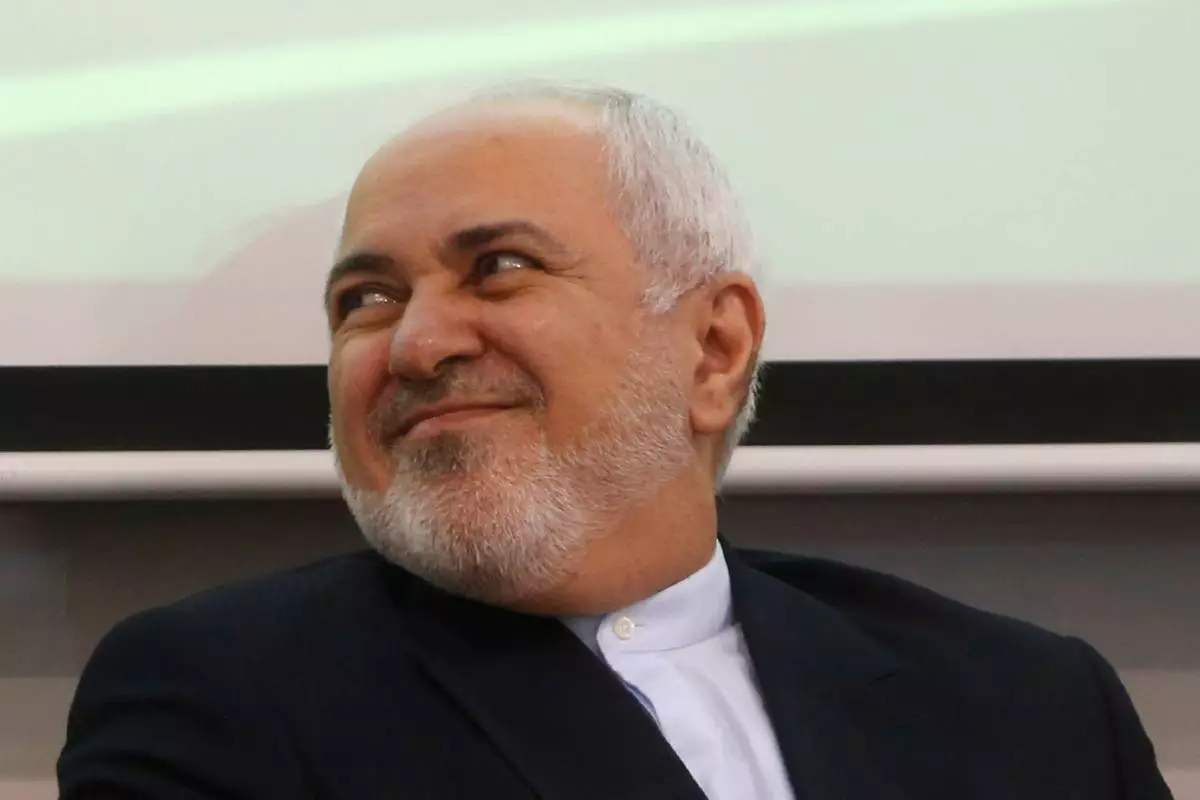
FILE - Iran's Foreign Minister Mohammad Zarif smiles during a meeting with students on a climate change forum at the Gabriel René Moreno Autonomous University, in Santa Cruz Bolivia, on July 23, 2019. (AP Photo/Juan Karita, File)










